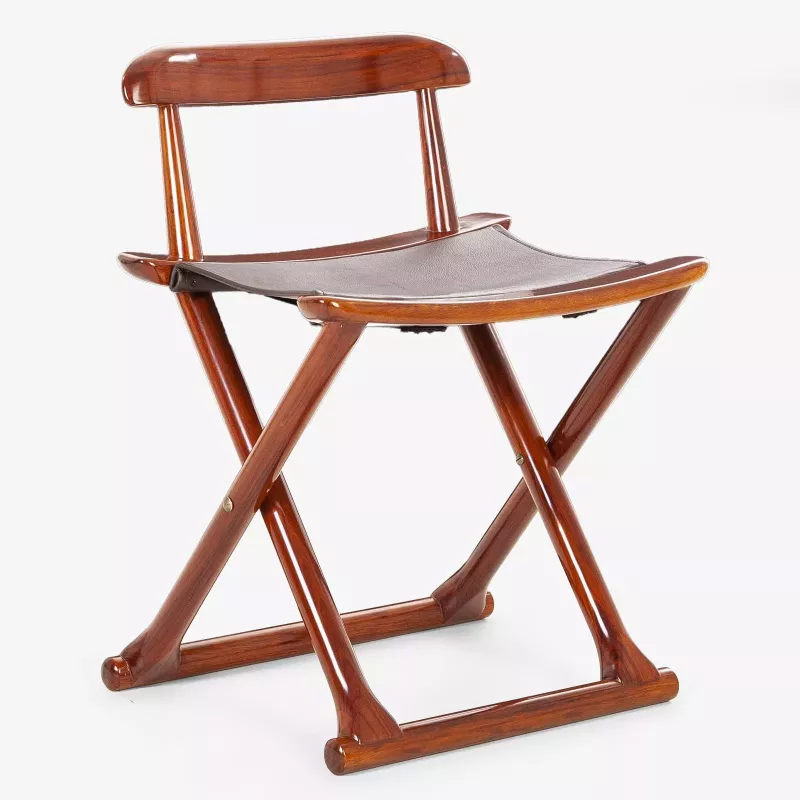BRIGHTON - Studded leather chair
Reference : STAR-0085
Dimensions : W45 x D42 x H91 cm
This supple leather chair is well upholstered on the back and seat for optimum comfort. The nails on the backrest complete the decor.

Custom manufacturing

Premium materials

Traditional assemblies

Exceptional finishes
Product informations
Features
- Seat height : 49 cm
Finishes
- Wood varieties : prunus avium (cherry), Entandrophragma cylindricum (sapelli), Entandrophragma utile (sipo), Juglans nigra (black walnut)
- Rosewood varnish finish
- Solid brass hardware : nails
- Cowhide full grain leather : seat and backrest
- Engraved and inked Starbay bone logo
Technical information
- Furniture delivered already assembled
- Parcel : W53 x D78 x H105 cm / 20kg (2pcs)
Maintenance tips
- Remove dust with an anti-static or slightly damp cloth
- Do not apply wax to avoid clogging the varnish
- Avoid cleaning with products that could potentially be abrasive to varnish
- Always protect surfaces before applying liquids or heat
- Nourish leather with body milk (for baby ideally)

Secure
payment

Made-to-measure
delivery

Customer service
and workshops in France

Click
& Collect
You may also like
Previous
Next


















